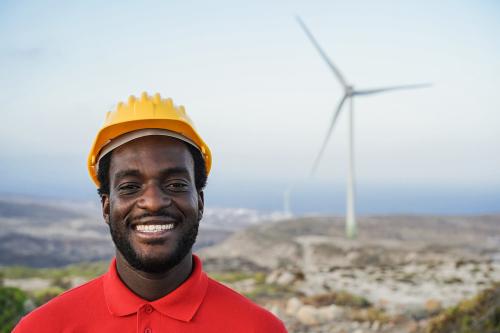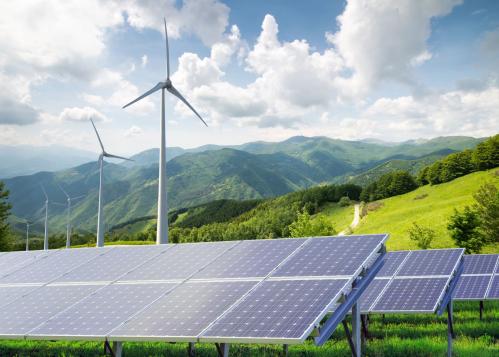Over the last several years, tremendous innovations focused on powering the world while cutting carbon emissions have emerged. Attention has gravitated heavily toward advancements in wind and solar, in particular, but another energy source may have the most immediate potential: advanced nuclear energy.
Interest is growing in advanced nuclear reactor designs that are safe, efficient, and have the capacity to power the world. Third Way’s Josh Freed detailed in his Brookings Essay, “Back to the Future,” how a flood of young engineers and private firms are focusing on advanced nuclear energy as the best option for battling climate change. In fact, Freed’s research has found nearly 50 startup companies working on advanced nuclear technology in the U.S. and Canada alone, raising about $1.3 billion in private investment.
On June 17, Brookings hosted a conversation on Capitol Hill with four energy experts, including Freed, about the opportunities for advanced nuclear energy and the challenges both in the U.S. and abroad. The event was moderated by Quartz Washington Correspondent Steve LeVine with an introduction from Brookings Senior Fellow Mark Muro.
Here are some of the highlights:
Advanced nuclear energy is aligning with environmentalism
Brookings Senior Fellow Mark Muro: “A new, promising confluence of generational change, societal urgency about climate change, and technology progress is making this a hopeful moment. This is the advanced nuclear ferment we’re here to talk about.”
Leslie Dewan, co-founder and CEO of Transatomic Power: “I became a nuclear engineer in the first place because I’m an environmentalist. I think that we need nuclear power alongside solar, and wind, and hydro, and geothermal if we want to have any reasonable hope of avoiding the widespread environmental devastation caused by fossil fuels and coal in particular.”
Josh Freed, Third Way’s VP of the Clean Energy Program: “The politics of nuclear are changing on generational lines.” Freed continued that, “the imperative of climate change has prompted a fair amount of progressives who view themselves as climate hawks to reconsider what used to be a grounding position of environmentalism which is that nuclear needs to be replaced.”
Brookings Senior Fellow Charles Ebinger: “One of the biggest problems I encounter is the people who do not understand that unless we can develop large scale battery storage and prove that that technology works, then there is no way that wind and solar can do it alone.”
The government isn’t keeping up with advances in reactor technology
Dewan: “In many ways it can be tricky to get funding for advanced nuclear from private investors, and that relates not so much to uncertainty in the technology but due to uncertainty in what the regulatory pathway will look like.”
Freed: “We’re facing a situation, once again, where the government needs to play catch up. I think we can do it. But we need to create the will here to figure out how.”
Ebinger: “You need an administration that’s committed; you need more R&D by the Department of Energy, and more tax credits and supports for companies.”
If the U.S. doesn’t lead the way, someone else will
Freed: “The question people in a lot of places are asking is how can we power our country cleaner, cheaper, and more reliable, period?”
Dewan: “China in particular is devoting billions of dollars to both developing advanced nuclear reactor technologies and developing a path for commercialization of those advanced technologies within China. And I think the U.S. really runs the risk of losing its place as being the forefront of nuclear technology.”
For more on the event and the participants, and to read the full event transcript, click here.
Nicholas Buchta contributed to this post.



Commentary
Advanced nuclear energy and the battle against climate change
June 19, 2015